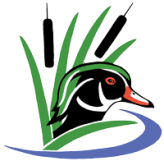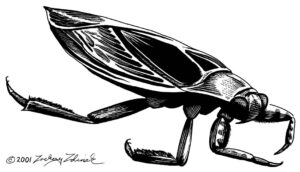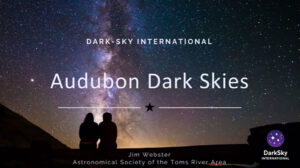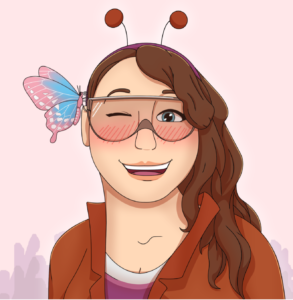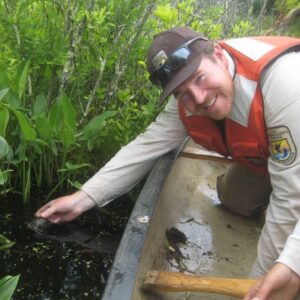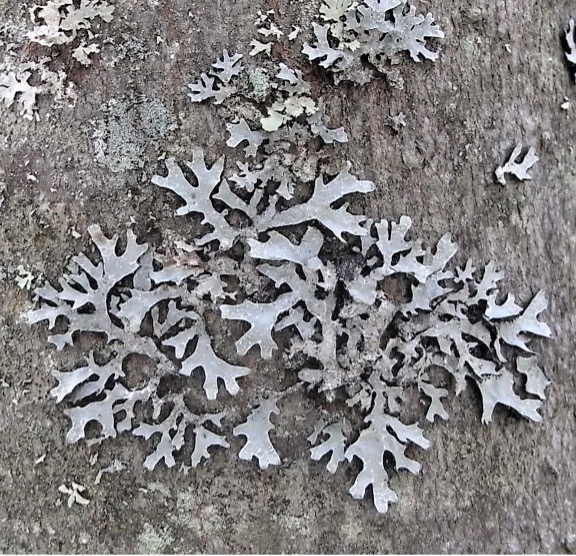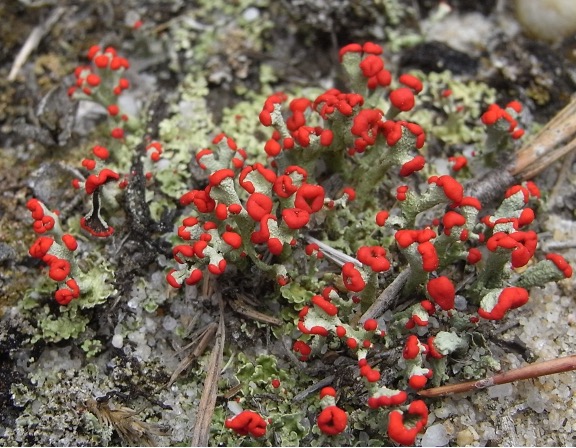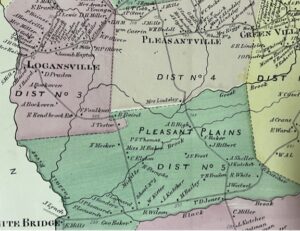Second Sunday with Friends, May 12, 2024, 1:30-3:00 pm, Unusual Insects of Great Swamp.
Why does that “bug” follow you on the trails? Is that a wasp digging holes in the gravel in the parking area? Join Judi DiMaio, Refuge volunteer, to learn about the unusual insects with seemingly unusual behaviors that Judi has encountered at the Refuge.
The May program with be in-person or via Zoom. Registration is required. In-person will be held at the Helen C. Fenske Visitor Center, 32 Pleasant Plains Road, Harding Township, NJ 07920
Register at ttsu.me/insects. The Zoom logon will be emailed to all registrants on Sunday, May 12 at noon.
Sponsored by the Great Swamp NWR and USFWS with generous support from the Martha Heflin Foundation.
Second Sunday with Friends, April 14, 1:30 – 3:00
Light pollution affects us all! It has a big impact on the birds we share our community with. We will explore the impact on our feathered friends and what we can do about it. The impact of light pollution can seem subtle but in fact, is very significant.
Please join Jim Webster from the Astronomical Society of the Toms River Area, Dark Sky Advocate, and SciStarter Ambassador and learn about the impact of light pollution on our planet and yourself.
The April program will be in-person at Helen C. Fenske Visitor Center and also virtually on Zoom. Registration is required.
The Zoom logon will be emailed to all registrants on Sunday, April 14 at 11:30.
Sponsored by Friends of Great Swamp NWR and USFWS with generous support from the Marta Heflin Foundation.
Second Sunday with Friends, March 10, 2024, 1:30 – 3:00
Science Writing Workshop with Chris Alice Kratzer
Learn the fundamentals of science communication with an award-winning author! This engaging workshop includes tools and tips on how to effectively use written language to share scientific information with a general audience.
The March program will be in-person at the Helen C. Fenske Visitor Center, 32 Pleasant Plains Road, Harding Township, NJ 07920 and also virtually on Zoom. Registration is required.
Sponsored by Friends of Great Swamp NWR and USFWS with generous support from the Marta Heflin Foundation
Second Sunday, February 11, 1:30 – 3:00
Join staff member Jared Green as he gives a tour of the Complex Refuges: Cherry Valley NWR, Great Swamp NWR, Shawangunk Grasslands NWR and Wallkill River NWR and the habitats and wildlife.
The February program will be held virtually only on Zoom. Registration is required. https://ttsu.me/complex
The Zoom logon will be emailed to all registrants on Sunday, February 11, 2024 at Noon.
Sponsored by Friends of Great Swamp NWR and USFWS with generous support from the Marta Heflin Foundation.
Second Sunday, January 14, 1:30 – 3:00, Lichen: their diversity, importance and role as indicators of air pollution.
Dorothy Smullen’s presentation about Lichen will focus on their diversity, importance, and role as indicators of air pollution.
Dorothy is a retired HS science teacher who as been a Nature and Garden Club speaker for 35 years, past president of NJ Mycological Association, and former board member of the Friends of Great Swamp National Wildlife Refuge. Dorothy is also a teacher/naturalist at New Jersey Audubon.
The January program will be in-person at Helen C. Fenske Visitor Center and also virtually on Zoom. Registration is required.
The Zoom logon will be emailed to all registrants on Sunday, January 14 at Noon.
Second Sunday, November 12, 2023, 1:30pm– 3:00pm
A History of People and the Great Swamp: The Good, the Bad & the Ugly by historian, Pat Wells.
From the time Ancient Lake Passaic drained to leave a swampy remnant through our current times, humans have interacted with and impacted the Great Swamp and the living things within it. Sometimes this special habitat has been taken for granted, sometimes vilified, sometimes considered a wasteland, and sometimes treasured. Join us for a lively history of the Great Swamp and the people who have used it, abused it, tried to obliterate it, and finally saved it.
THIS WILL BE A HYBRID PROGRAM: – in-person at the Helen C. Fenske Visitor Center (32 Pleasant Plains Road, Harding Township, NJ) – on Zoom (log-on information will be sent to registrants on Sunday, November 12 at noon) Registration is required for either in-person or Zoom.
Sign up at ttsu.me/greatswamphistory
